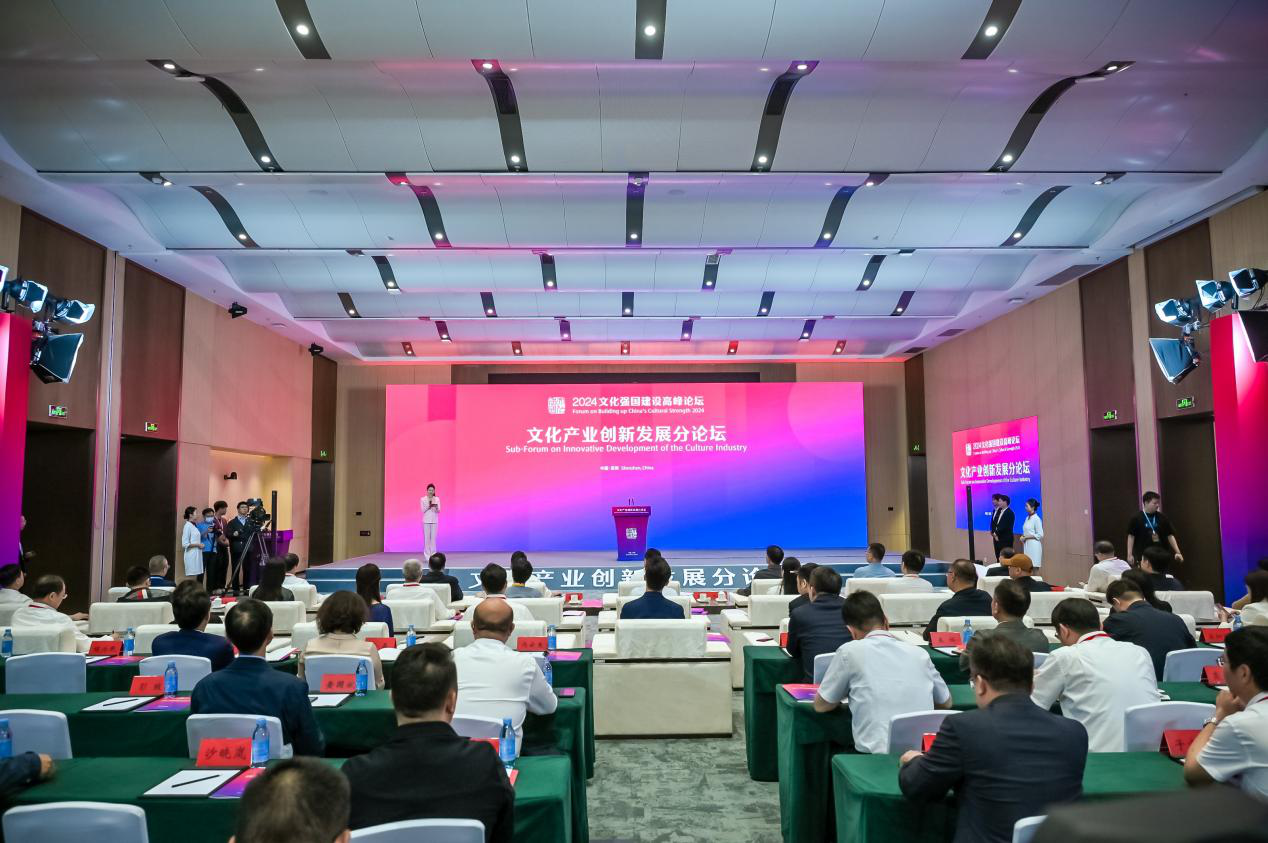The integration of artificial intelligence (AI) and the fusion of culture with tourism dominated discussions at a sub-forum of the Forum on Building up China's Cultural Strength 2024 held in Shenzhen from May 23 to 24.
The sub-forum centered on the innovation development of the culture industry. Industry leaders and scholars convened to explore the role of innovation in propelling the cultural sector towards high-quality growth. The forum underscored the transformative potential of technology in creating cultural "blockbusters" and the dynamic landscape of cultural tourism.

(Photo provided to GDToday)
Technology as a catalyst for creative breakthroughs
AI technology emerged as a central theme, with film and television professionals expressing optimism about its impact on the industry. Fu Ruoqing, chairman of China Film Group Corporation, highlighted the significant role of AI in the production of hit films like "The Wandering Earth 2," which utilized AI to digitally rejuvenate actors, showcasing their youthful appearances and voices.
Cai Huaijun, deputy head of Hunan Radio and Television Group, emphasized the importance of integrating culture with technology beyond simple addition, focusing on innovation that fosters both introspection and outward expansion. The success of programs like "Singer 2024" was attributed to innovative content interaction across various video formats.
Zhang Lina, chief editor of Youku.com, envisions a future where the synergy between technology and art not only empowers creators but also enriches the audience's experience. The advent of virtual production and AI technologies is enabling filmmakers to bring their most imaginative ideas to life.
Wu Xiaoru, president of iFLYTEK, spoke about the strategic importance of large AI models in advancing cross-cultural communication and content creation, asserting the need for an autonomous and controllable AI infrastructure in a culturally rich country like China.
Cross-sector integration spawns new industrial paradigms
The concept of cultural tourism integration was also a hot topic, with the case of Harbin's rise to prominence in the cultural tourism sector serving as a prime example. Zhou Wei, general manager of Harbin Madieer Culture and Tourism Investment Group, attributed this success to effective media utilization and collaborative efforts between the government, market, and citizens.
The evolving nature of tourism in China was discussed, with a shift from sightseeing to experiential and vacation-style travel. The focus is now on creating core IPs, providing emotional value, and constructing consumer scenarios.
Zheng Qingdong, president and chief editor of the Economic Daily, noted the profound integration of culture with the economy and society, spurring the flourishing of the cultural and tourism industries. The emergence of "Internet celebrity cities" has not only stimulated cultural tourism consumption but also paved new avenues for industry growth.
The forum also highlighted the impact of television dramas like "To the Wonder" on boosting tourism, with iQIYI's Chief Content Officer Wang Xiaohui discussing innovative partnerships with relevant government departments to create a new ecosystem of cultural tourism cooperation.
Reporter | Lydia Liu
Editor | Nan Hu, Abby Chen, James
















